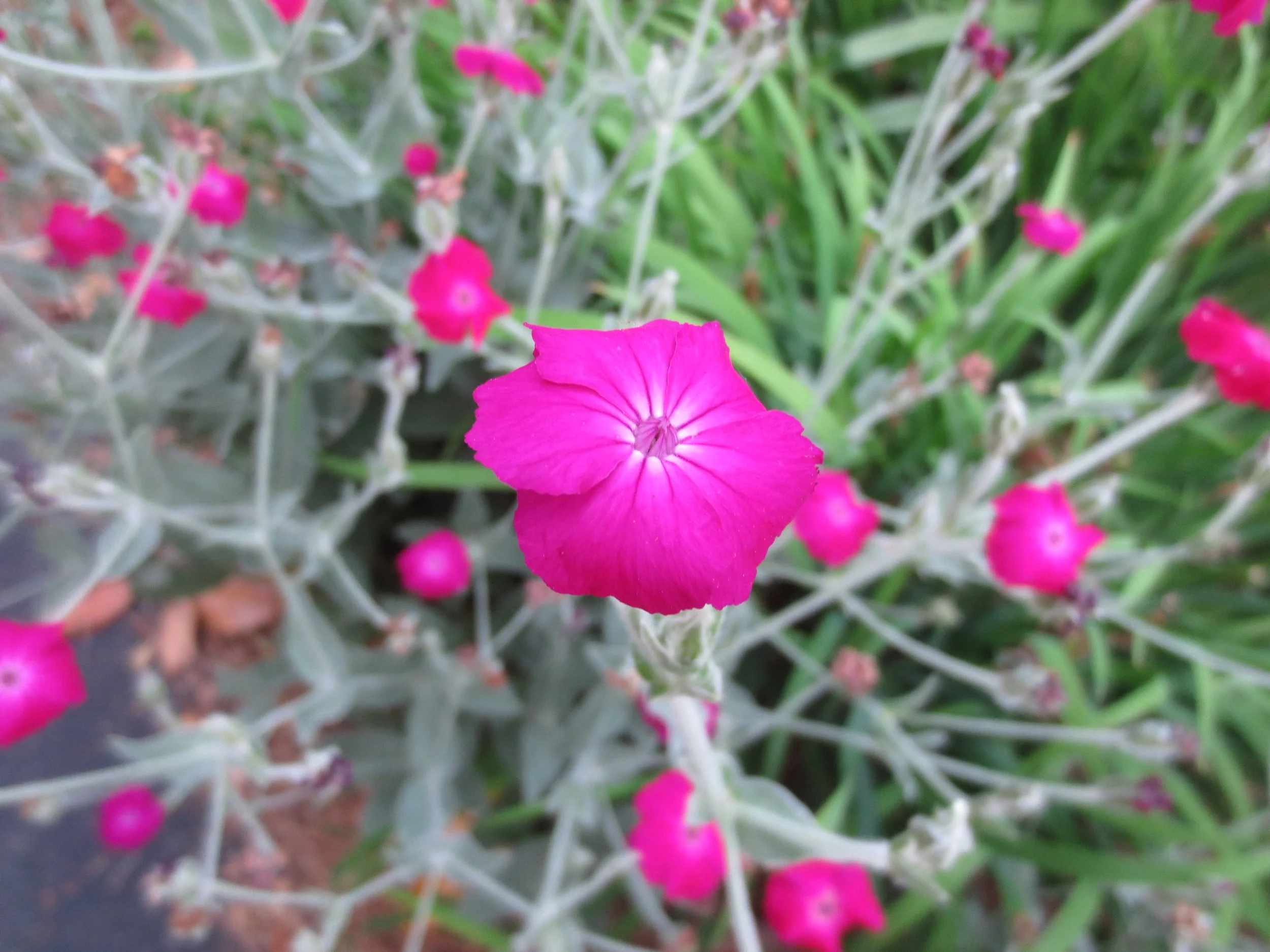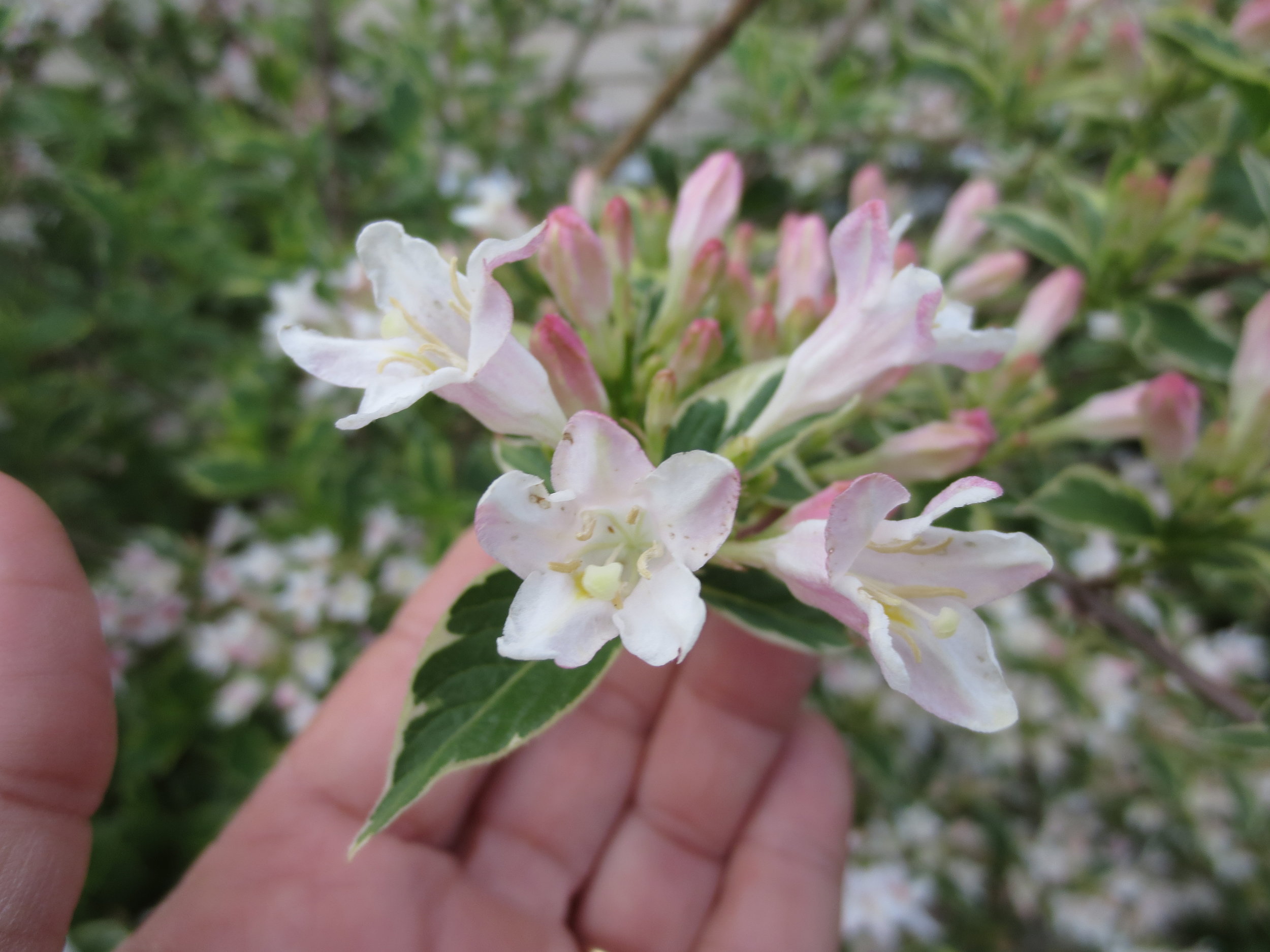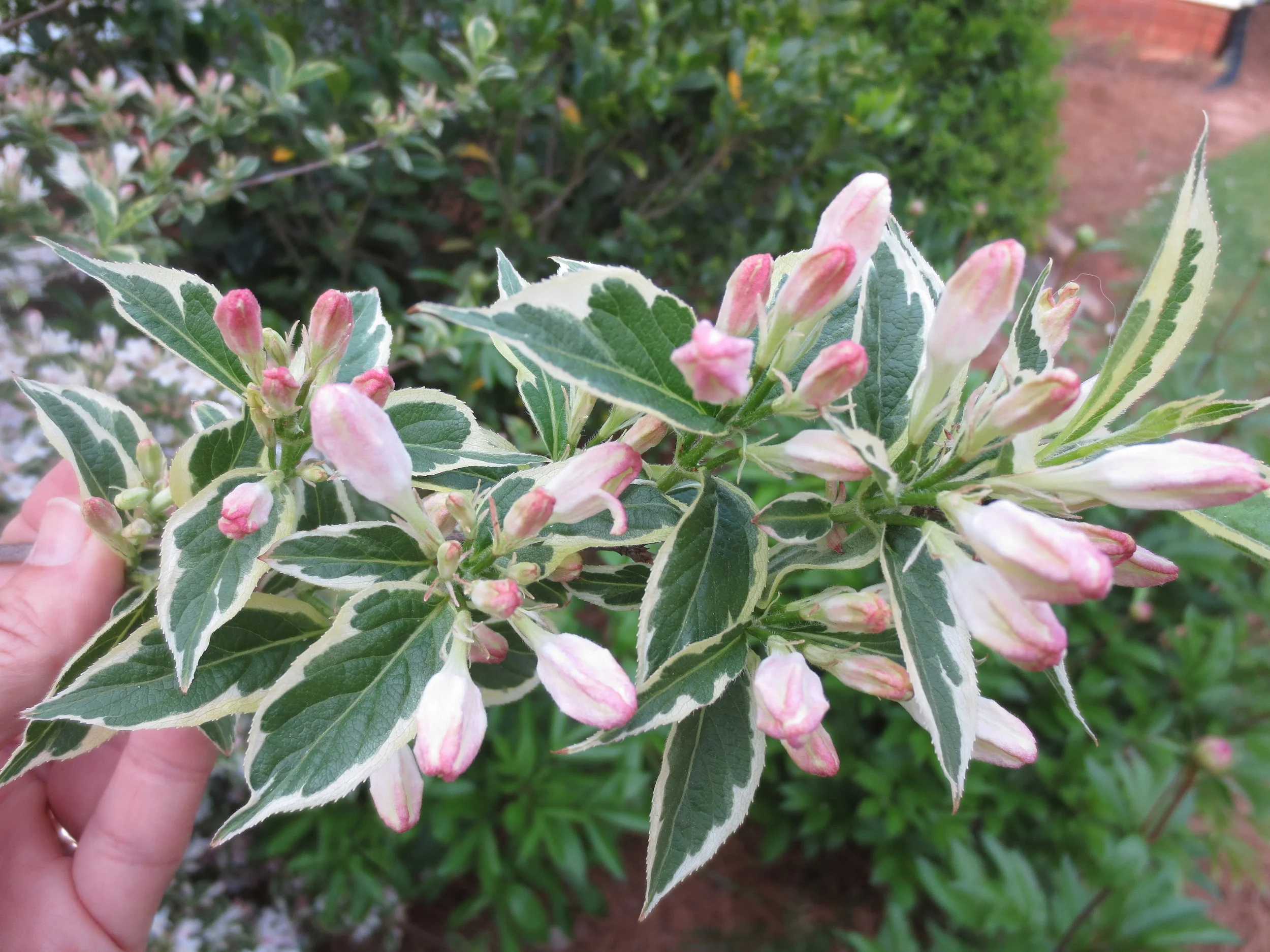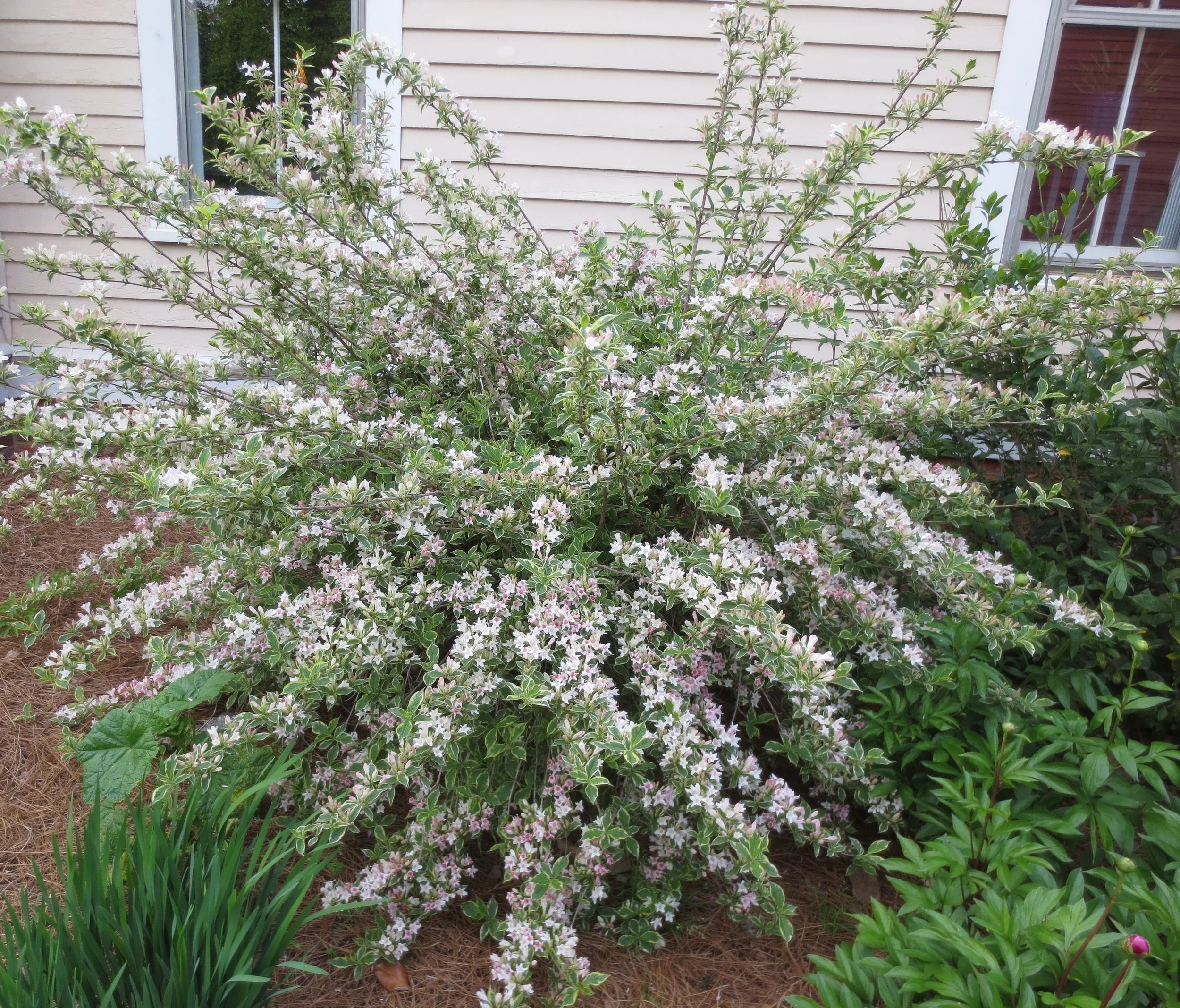Weigela is one of those shrubs that puts on a heart-stopping bloom display in the spring, then fades into obscurity the rest of the year. Mature shrub sizes vary from two feet to ten feet. They don’t mind acidic clay soil, and will tolerate limited drought once established. They prefer morning sun and afternoon shade. Weigela florida sounds like they are Florida natives, but they hale from Japan, Korea and North China.
Most funnel-shaped flowers are white or pink with a darker pink reverse. The blooms occur the entire length of the stem, so the pink buds are seen along with the white blooms. I have seen true red and purple varieties offered in catalogs, but have not found them in local nurseries. All colors are loved by hummingbirds and bumblebees. One of my favorites is ‘Variegata,’ which has white edged leaves, making it pretty even when not in bloom. ‘Wine and Roses’ cultivar has a burgundy leaf and a dark pink bloom. ‘My Monet’ has variegated pink and white leaves, pink blooms, and is dwarf (no more than two feet tall) which makes it easy to incorporate into a mixed border.
This deciduous shrub is round and somewhat loose. There is no fall color. The branches of a mature specimen arch similar to Forsythia. Through experimentation in the Mary Snoddy garden, I have found that the shrub looks best if about one-third of the branches are cut back hard (half their original length) immediately after bloom. This forces new growth. Heaviest blooms occur on the youngest stems. I follow the hard pruning with an overall shaping, to restrict size. If pruning is done mid-summer or later, there will be little to no bloom the following spring.
Weigela grows in zone 4 to 8. The further south, the greater the need for a little shade during the hottest part of the day. Deer think they are delicious, so site them away from easily accessed areas. (We all know that deer will take a bus and climb a ladder to reach something they find tasty.)
The name is pronounced wye-JEE-lah. There is not an “i” in the last syllable, so it is not wye-JEEL-yah.



